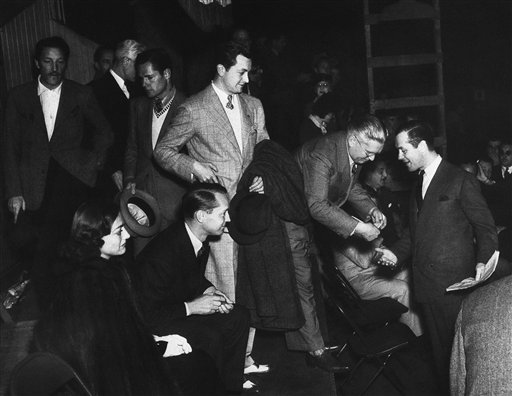In Lincoln Federal Labor Union v. Northwestern Iron and Metal Co., 335 U.S. 525 (1949), the Supreme Court rejected labor union challenges and affirmed that anti-closed shop laws were not in violation of First Amendment rights of speech, assembly, or petition and did not interfere with the equal protection clause of the Fourteenth Amendment.
The Court decided this case along with Whitaker v. North Carolina and on the same day as American Federation of Labor v. American Sash and Door Co. (1949).
Case upheld prohibition on ‘closed shop’ laws against First Amendment challenge
Lincoln Federal upheld a Nebraska constitutional amendment, and Whitaker upheld a North Carolina law, both of which prohibited “closed shops,” limiting employment to union members. Both state supreme courts had upheld these laws.
Writing for the Court, Justice Hugo L. Black, after summarizing the First Amendment claims in the case, concluded the following:
There cannot be wrung from a constitutional right of workers to assemble to discuss improvement of their own working standards, a further constitutional right to drive from remunerative employment all other persons who will not or can not participate in union assemblies. The constitutional right of workers to assemble, to discuss and formulate plans for furthering their own self interest in jobs cannot be construed as a constitutional guarantee that none shall get and hold jobs except those who will join in the assembly or will agree to abide by the assembly’s plans.
Court referenced precedents
Black cited a number of precedents to dismiss the claim under the contract clause and also dismissed equal protection arguments. He tied the Court’s decision to the renunciation of the line of cases beginning with Allegeyer v. Louisiana (1897), continuing through Adair v. United States (1908), Lochner v. New York (1905), and ending with Coppage v. Kansas (1915), in which it had enforced extraconstitutional ideas of due process to limit economic regulations.
Justice Felix Frankfurter wrote a concurring opinion included at the end of American Federation of Labor in which he stressed the merits of judicial deference to the other two elected branches of government.
Justice Wiley B. Rutledge also included a concurring opinion in the accompanying case, joined by Justice Frank W. Murphy, indicating that he did not think the cases settled the issue as to whether a union might call a strike in order not to have to work with nonunion men.
This article was originally published in 2009. John Vile is a professor of political science and dean of the Honors College at Middle Tennessee State University. He is co-editor of the Encyclopedia of the First Amendment.

